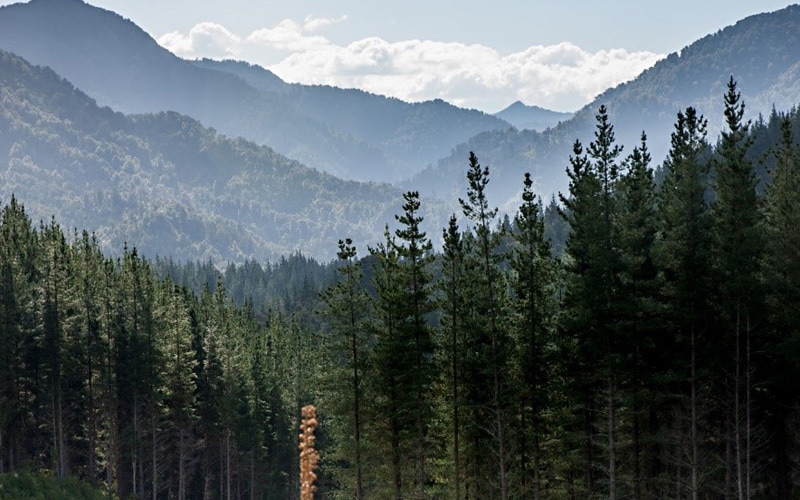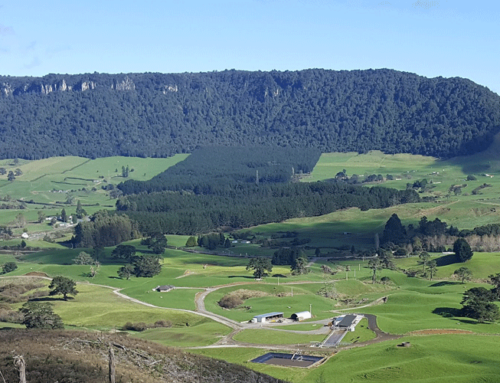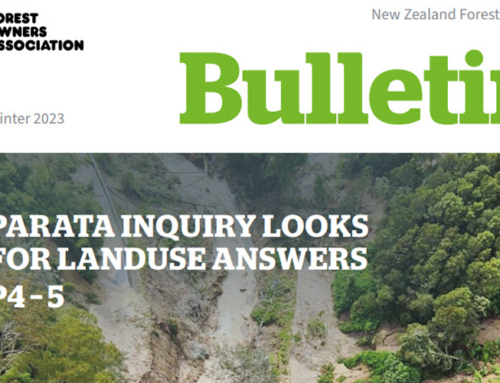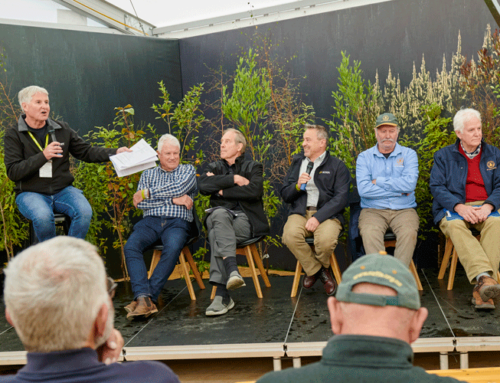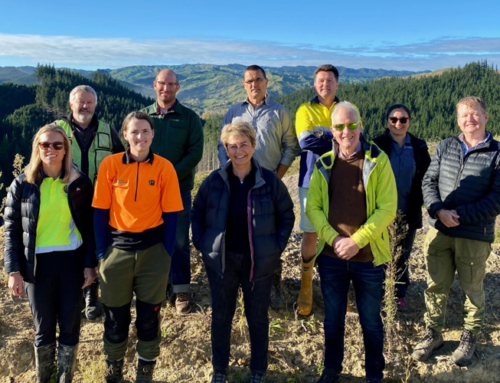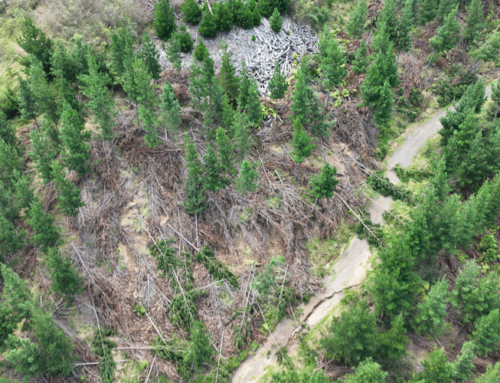Hawkes Bay Forestry Group, June 2019 – Forestry is an exciting story with many beneficiaries, and is making a serious contribution to the Hawkes Bay economy. At the national level, forestry is pushing to be our 2nd largest export earner and helping us transform to a bio-circular economy.
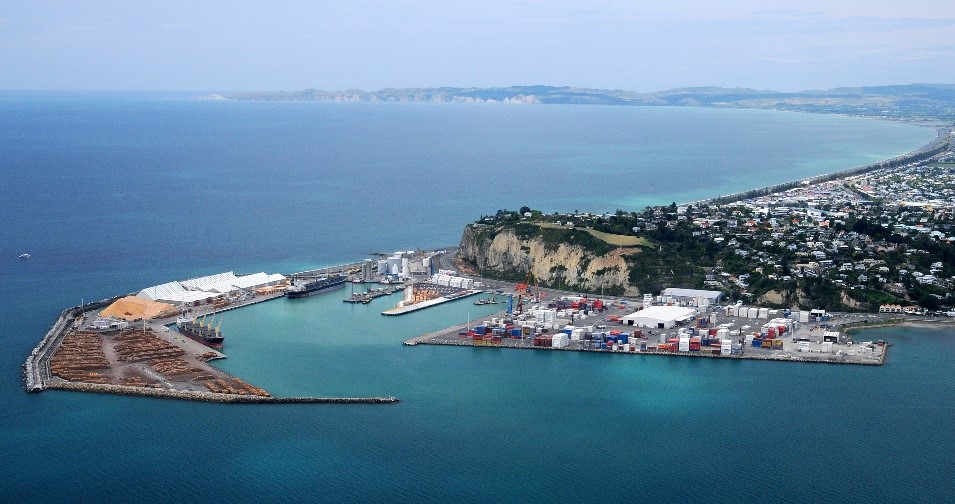
Napier Port is highly dependent on a vibrant trade in wood products.
Unlocking forestry’s potential
Science, innovation and technology are unlocking the potential of forestry and driving a shift to high tech harvesting and manufacturing. Just as New Zealand earns plaudits for efficient production of meat products, so too are we seen as being good at producing wood – we need to be, given our distance from markets!
While some worry at job-losses implicit in exporting logs, most see exports offering investors real choice and helping keep the domestic processing market competitive.
Forestry has been regarded as a less-than-sanguine work opportunity, but this too is changing. Innovation, continuous training and an uncompromising stance on safety are key. School leavers are recognising here a diverse opportunity for well-paying and interesting careers for skilled workers, technicians and professionals. Those on the inside value their jobs and agree that Hawkes Bay would be a poorer place without forestry.
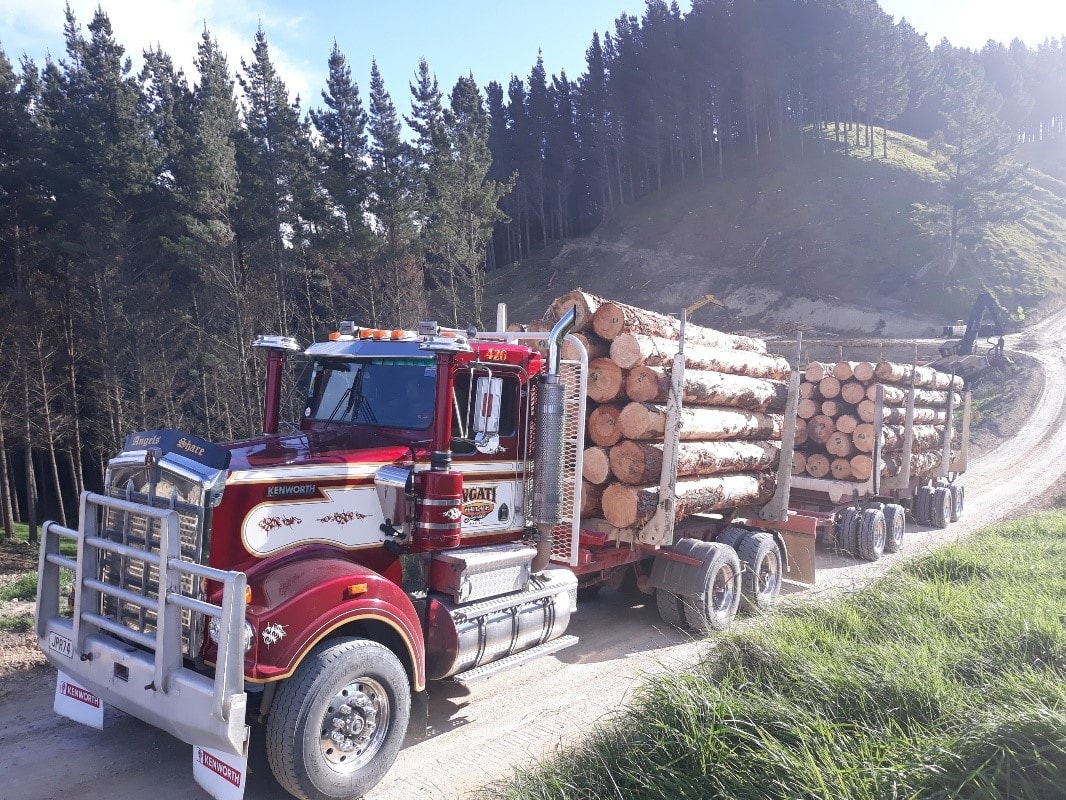
People who work in forestry are safe, valued and well-trained.
Forestry key to carbon-zero
From a national perspective, New Zealand needs to transition to a more sustainable future and a low emissions economy. The Government sees this involving an increased role for commercial plantation forestry.
Carbon sequestration is key to mitigating climate change, and fast-growing exotic tree plantations are the most effective for this.
The very high cost to New Zealand of not achieving the 2050 zero carbon target as galvanised the One Billion Trees planting programme which is expected to lift the total land under tree plantations from 1.7 to 2 million hectares across New Zealand by 2028.
Community resilience, together
The One Billion Trees initiative is seen by some as triggering a rush of sheep and beef farms being sold for conversion to forests. The thing is, we have seen a reduction in farms as a general trend for many years – there are a number of factors at play here, including farm amalgamations, urban spread and an aging population. What this suggests is not an alarming shift but a more gradual redistribution in land use.
Tree plantations offer opportunity to build greater resilience for rural communities, environmental shocks and a changing climate. The need for such resilience is perhaps gaining traction now with awareness of possible catastrophic economic and livelihood impacts from the emerging global market for ‘meat’ substitutes, for instance.
Whichever way we look at it, farming and forestry are partners in our future success: all will lose if we allow an ‘us versus them’ approach. We need to work together to get the best outcomes for the land and water and for the good of our communities. Now is the time to step up and focus on the opportunities of further diversifying our land use.
Together we can make meaningful change at the right pace, and in so doing reinforce our reputation as a world leader in sustainably-grown, low emissions, high value natural products.
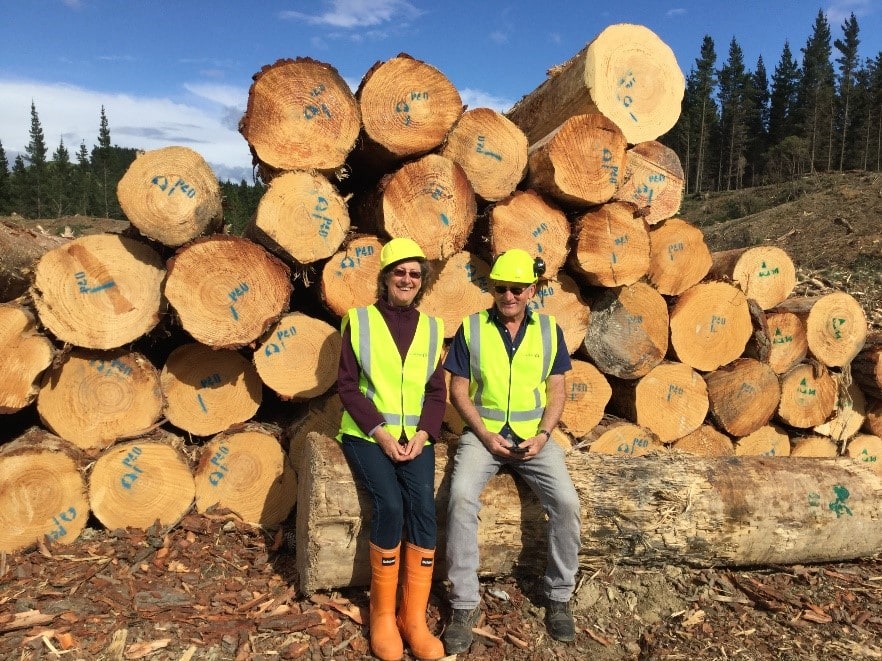
Retirement just got a whole lot better for Hawkes Bay residents Keith and Marie Dolman.
By Keith Dolman, General Manager of Hawkes Bay Forestry Group – kdolman@novapsi.net.nz
Forest Enterprises is a member of Hawkes Bay Forestry Group. For more information: http://hbforestrygroup.org



